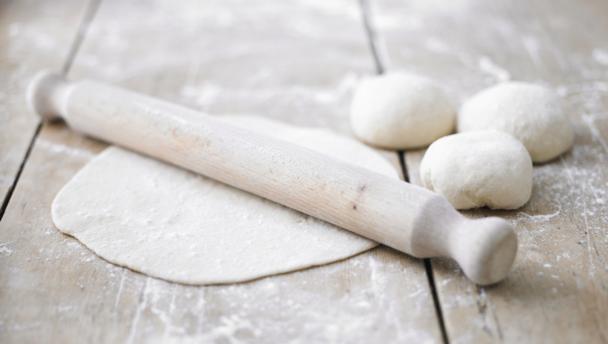White flour tends to be a perennial favourite of most of us when it comes to baking. The reasons behind this love are simple. White flour is easily available, affordable and serves as a decent option while whipping the batter. But then, white flour hardly contains any nutrient; moreover, it is known to affect your health in a negative manner. It increases risks of high blood pressure, obesity, diabetes, fatty liver disease, anxiety, heart problems and even cancer! So, why not do away with white flour and opt for healthy alternatives? Indeed, there are many healthy substitutes for white flour in baking.
Almond flour: Use almond flour made out of ground almonds for a perfect gluten-free treat. So, next time you bake cookies and pancakes, it is best to opt for sprouted almond flour. Though it is not a whole grain, it makes a unique choice for baking. It is quite expensive too. However, a controlled use of almond flour is recommended because it is loaded with omega-6 acids, which should be consumed in moderation.
Coconut flour: Coconut flour is a great choice if you wish to bake cakes that are high in fiber content and low in carbs. While you use this flour for baking, you may end up using more liquid than usual. However, since coconut is naturally sweet, sugar will be required less in quantity.
Millet flour: If you want a white flour substitute that is easily digestible and is also high in minerals and proteins, go for millet flour. This sweet and buttery, protein-rich, gritty flour provides structure to bread, flat breads and muffins. It also lends a subtle cornmeal-like flavour and beige colour to your baked goodies.
Oat flour: Add this gluten-free flour to muffins and cookies and have them crisp and fresh. Oats contain antioxidants which are helpful in retaining the freshness of baked items. Just as in case of coconut flour, while preparing cakes and cookies with oats, you need to use more liquid than usual.
Quinoa flour: This gluten-free flour is excellent for baking breads, muffins, cookies and crackers. This light and nutritious flour with nutty flavour enriches your cakes and muffins by increasing the protein content. However, it is better to use this flour in combination with other flours while baking.
So, whenever you bake cakes and waffles and cookies, try any one of these five healthy alternatives. May be, you will have to experiment initially and find out the right proportion in which it should be used so that you get baked goodies perfect. But then, health is important and it is desired that you prepare your food in such a way that it caters not only to your taste buds but also to your health. Happy baking!
Millet flour: If you want a white flour substitute that is easily digestible and is also high in minerals and proteins, go for millet flour. This sweet and buttery, protein-rich, gritty flour provides structure to bread, flat breads and muffins. It also lends a subtle cornmeal-like flavour and beige colour to your baked goodies.
Oat flour: Add this gluten-free flour to muffins and cookies and have them crisp and fresh. Oats contain antioxidants which are helpful in retaining the freshness of baked items. Just as in case of coconut flour, while preparing cakes and cookies with oats, you need to use more liquid than usual.
Quinoa flour: This gluten-free flour is excellent for baking breads, muffins, cookies and crackers. This light and nutritious flour with nutty flavour enriches your cakes and muffins by increasing the protein content. However, it is better to use this flour in combination with other flours while baking.
So, whenever you bake cakes and waffles and cookies, try any one of these five healthy alternatives. May be, you will have to experiment initially and find out the right proportion in which it should be used so that you get baked goodies perfect. But then, health is important and it is desired that you prepare your food in such a way that it caters not only to your taste buds but also to your health. Happy baking!
